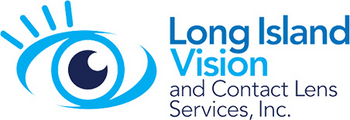
Football Trivia: How Can An Eye Doctor Help Athletes After a Head Injury?
Published:
Did you know that according to the National Football League's (NFL) injury data, NFL athletes sustain a combined total of 200-300 concussions per year? Any high-impact sport places the player at high risk for potential brain injury, which can affect other areas and functions of the body – such as vision. Neuro-optometrists can help facilitate healing after a concussion and other brain injuries to help patients regain lost visual abilities and skills.
What Is a Concussion?
A concussion is the mildest form of traumatic brain injury (TBI) and can occur following a forceful impact to the head. In many cases, a concussion doesn't necessarily lead to unconsciousness or lost vision, but it may result in other symptoms, such as:
- Memory problems
- Confusion
- Blurred or double vision
- Sluggish feeling
- Vomiting or nausea
- Sensitivity to light or noise
- Headache
- Balance problems
Symptoms range in severity, depending on the degree of injury and impact. However, studies show that 90% of all concussions result in some form of visual dysfunction.
How Can Concussions Affect Vision?
Those having suffered a concussion may experience a host of visual disturbances, such as blurred or double vision, eyestrain, or problems with reading. Issues with eye coordination or eye-teaming may also develop, as the eyes become misaligned following head trauma. This can cause both visual and cognitive problems, such as difficulty thinking, mood swings, frustration, attention deficits, headaches, and memory issues.
If you or a loved one is faced with a concussion or displays any of the above symptoms following a head injury, it’s important to call Vision Therapy Center At Long Island Vision Care for a complete assessment of visual function to regain any lost visual skills and abilities.
How Neuro-Optometrists Treat Sports-Related Injuries
Neuro-optometrists are uniquely trained to diagnose and treat visual aberrations related to concussions. It’s important to note that not all optometrists are trained in this specific area, so it’s best to choose a doctor experienced in treating those with concussions or other traumatic brain injuries.
The neuro-optometrist will begin by assessing your ocular health and evaluating your visual skills, such as eye teaming, focusing, tracking, and depth perception. The diagnostic process follows standardized criteria, after which you will be provided with a personalized treatment plan. This specific therapy, called neuro-optometric rehabilitation therapy, aims to improve various acquired visual dysfunctions that follow a head injury.
This kind of rehabilitation promotes recovery through various therapies and activities that retrain the neural processes of the brain. By establishing new brain pathways (also known as neuroplasticity), the patient learns to use other parts of the brain in order to recover the function of the impacted regions of the brain, in this case —vision.
Neuro-optometric rehabilitation involves the use of specialized lenses and prisms (among other tools) as part of the rehabilitation strategy. Anyone who displays any of the above symptoms following a TBI should visit a neuro-optometrist to give themselves the best chance at recovery. Sometimes, visual dysfunction can manifest itself in areas that may seem unrelated to vision, such as anxiety, panic attacks or balance/posture problems. Anyone who’s suffered a concussion or TBI, no matter the age, can benefit from a neuro-optometric rehabilitation program.
Accidents occur more often than one would expect. If you or your child suffer from a concussion after a sports injury, you can rely on us for the expertise and professionalism you need. Call Vision Therapy Center At Long Island Vision Care to book your appointment today.
We provide neuro-optometric rehabilitation therapy and other services to patients from Huntington, Lake Grove , Hicksville, Brentwood, and throughout Long Island.
